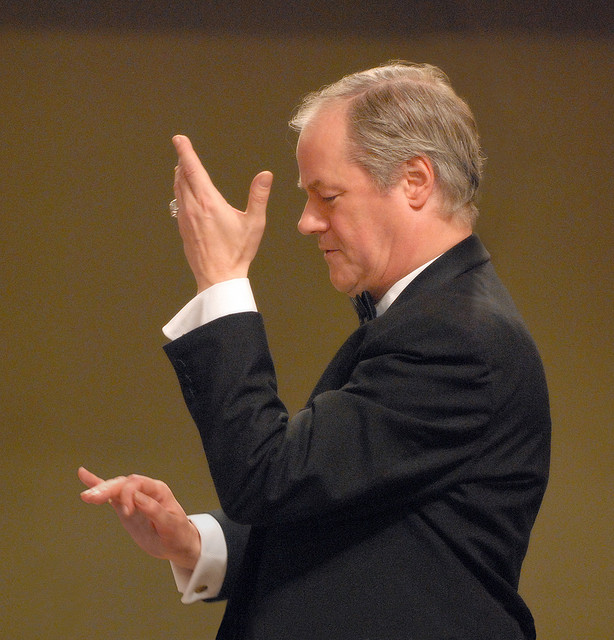A Village Romeo and Juliet at the Southbank Centre

An evening of operatic drama with conductor Ronald Corp, The London Chorus, and The New London Orchestra.
A Village Romeo and Juliet is an opera by Frederick Delius, the fourth of his six operas. Delius is one of England’s most captivating composers. To mark the 150th anniversary year of Delius’s birth, Ronald Corp conducts the New London Orchestra and Chorus in the rarely heard opera, A Village Romeo and Juliet – last night was the first London performance in 50 years.
The story is, of course, reminiscent of Shakespeare’s infamous tragedy Romeo and Juliet which is about two young lovers whose deaths ultimately unite their feuding families, although in the case of A Village Romeo and Juliet, the feud is left unresolved – Delius seems to have a more realistic and “ordinary” perception of the world, which is reflected in his operas.
Ronald Corp tells us a little about Delius’s sound: “His sound world is unique; there are echoes of Debussy and the French impressionists, as well as a suggestion of something more dramatically Gallic. We don’t really study how this musical argument unfolds: forever turning in a slightly new direction, while always keeping thematic integrity”. True, the evening was certainly one of unexpected power and surprises, all the while engaging the audience in the narrative and flow of the story.
Anna Devin (soprano), Joshua Ellicott (tenor), Christopher Maltman (baritone), David Wilson-Johnson (baritone) and Andrew Shore (baritone) gave engaging and touching performances. However, the orchestra often dominated, drowning their voices – their words inaudible at times, even sounding muffled; whether this was due to the acoustics of the venue, or the individuals themselves, we’re unsure.
The New London Orchestra and The London Chorus lived up to their reputation – they were unimpeachable, an orchestra of highly skilled musicians, none can be criticised. All those familiar with Delius’s composing will agree it takes skilled musicians to master his twists, turns and plethora of styles and influences, which are allegedly products of Delius’s travels around America and Europe during his lifetime.
It has also been noted that the choral works are difficult to sing because the individual lines are governed more by the chromatic harmony rather than by a feeling for linear melody, creating a challenge for the choir, whose voices resonated eerily and affectingly throughout the hall.
The word “opera” fills one’s head with ideas of passion, romance and beauty. However, the Queen Elizabeth Hall itself, the lighting, and the set-up were far from romantic. The vocalists, The New London Orchestra, and The London Chorus were all packed onstage. Extremely bright lights shone over the entire stage – not only over the orchestra (as one would expect). In addition to this, the house lights flooded the audience as well; every move made by the many, many musicians was visible, as were the movements of the audience – this caused huge distraction. There were no particular focal points throughout the night, and far too much to look at. The delivery of the words, whilst powerful, were not accompanied by any actions or facial expressions, even during heated moments of the story, which seemed usual.
British operas at the turn of the 20th century have to be seen and heard in the context of their time. The language and the librettos could seem rather mysterious to our modern ears, however, musically speaking last night’s rendition of A Village Romeo and Juliet was a wonderful opera; remove the visual confusion, and the show was a real masterpiece.
Lauren Poole
Photo: New London Orchestra
A Village Romeo and Juliet is at the Southbank Centre now. For further information or to book visit the show’s website here.























Facebook
Twitter
Instagram
YouTube
RSS